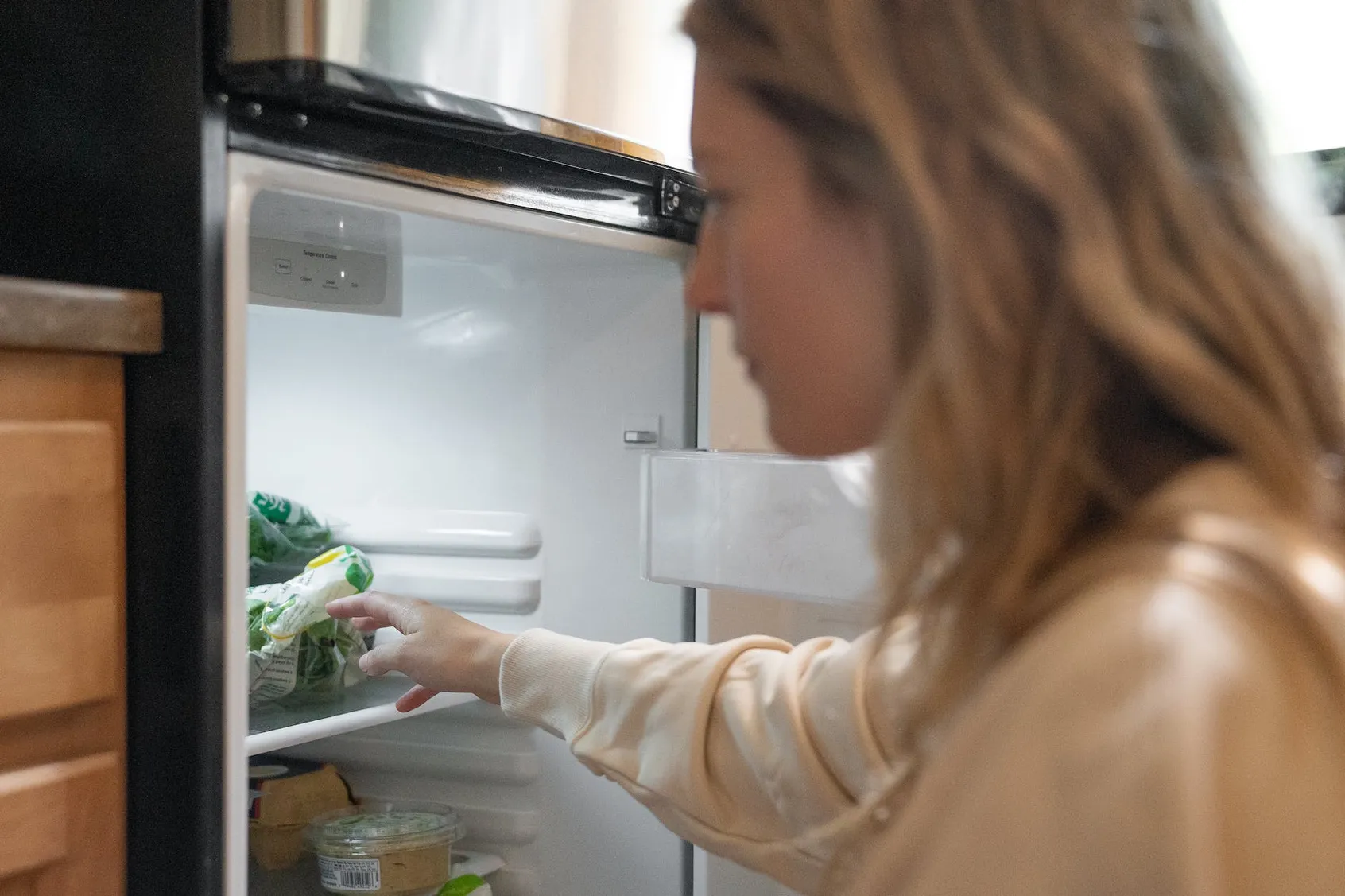The prospect of parents divorcing is an incredibly difficult and emotional experience for a child to grapple with. It can be especially challenging and confusing for a child to process if they don’t know what is happening. In such a situation, a child may feel overwhelmed and unsure where to turn for answers.
One of the most important questions a child can ask is, “Are my parents getting a divorce?” This question can be incredibly difficult to ask; however, it is necessary to understand the situation and gain the closure and support needed to cope with the pain.
Are My Parents Getting A Divorce?
As children, one of the hardest questions is, “Are my parents getting a divorce?”. This can be a very difficult and painful question, especially if the answer is yes. No matter the outcome, it can be stressful and confusing for a child.
The first step in dealing with this situation is understanding that it is not the child’s fault. It is important to remember that this is an adult decision and not something the child controls. It is also important to remember that both parents still love the child and that divorce does not change that.
The next step is to find support. This can come in many forms, such as family members, friends, or counselors. These people can provide emotional support and help the child understand what is happening. Talking to other children who have gone through similar situations can also be helpful. This can make the child feel less alone and provide insight into coping.
It is also important to remember that talking about the situation is important. It is okay to express feelings and ask questions about what is happening. Talking about the situation can help the child process emotions and understand the situation better.
Finally, it is important to take care of oneself. This can include activities such as spending time with friends, engaging in hobbies, and taking time for self-care. All these things can help the child process the situation and cope with the emotions that come with it.

The Impact Of Divorce On Children
The impact of divorce on children is a serious issue that can have long-lasting effects. Children can experience a wide range of emotions when their parents are getting a divorce, including feelings of confusion, guilt, sadness, anger, and fear. They may also struggle to understand why their parents are splitting up and feel the situation is beyond their control.
As a result, kids may have difficulties in school, experience behavioral problems, and struggle to form relationships with peers and adults. It is important for parents to be aware of the potential consequences of their divorce for their children and to ensure that their children are supported throughout the process.
Additionally, parents must consider how to answer the question best, “Are my parents getting divorced?”. It is important to be honest and provide reassurance and support. Parents should be aware that their children may be feeling overwhelmed and scared, and they should strive to be as supportive as possible.
Additionally, it is important to remember that children may be feeling a range of emotions, and it is important to validate these feelings and be available to talk and listen.
Furthermore, providing a sense of stability and consistency for children is important. This can be done by maintaining the same routines and expectations, such as school, bedtimes, and family meals.
Additionally, parents should be mindful of their emotions and remain calm and patient when communicating with children. It is also important to ensure that children are involved in the process and informed of any changes or decisions made.
Understanding Parental Divorce From A Child’s Perspective
When it comes to dealing with the pain of parental divorce from a child’s perspective, it can be a difficult and confusing experience. A child may ask themselves, “Are my parents getting divorced?” Unfortunately, this is not the right question to ask. It’s important to recognize the underlying issues that can lead to a divorce and to understand the implications of a divorce on a child’s life.
When understanding the pain of parental divorce, it’s important to recognize that each child experiences it differently. Some children may feel betrayed, scared, or helpless in the face of the situation. Others may feel relief or a sense of freedom. Awareness of these emotions and willingness to talk about them with the child is important.
It can also be helpful to explore how a child can cope with the emotions they are feeling. It’s important to provide a safe environment where the child can talk about their feelings and work through them. This can include journaling, listening to music, spending time with friends, and participating in activities that make them feel happy.
It’s important to provide a sense of stability and to help the child adjust to the changes. This can include moving to a new city, attending a new school, or adjusting to different visitation schedules with each parent. It’s also important to be aware of the practical implications of a divorce on a child’s life.
Finally, it’s important to remember that dealing with the pain of parental divorce is a process. It’s important to take it one step at a time and to provide the child with the necessary support and guidance. It’s also important to recognize that the child may have a long journey ahead of them and that it’s important to be patient and understanding.
Coping Strategies For Dealing With The Pain Of Divorce
Divorce can be an incredibly difficult experience for children to go through. It can leave them feeling angry, betrayed, and confused. It’s important for parents to consider the impact their divorce can have on their children and to take steps to help their children cope with the pain.
One of the best ways for a child to process and cope with the emotions associated with divorce is to ask questions. For a child to effectively cope with the pain of divorce, it’s important to provide the necessary tools and resources. A child should be able to talk to a trusted adult or therapist and be encouraged to share their feelings and ask questions.
It’s also important that a child has access to information and resources that can help them better understand and process the situation. A child should also be allowed to express their feelings and opinions in a safe and secure environment.
A child needs to be able to identify and express their feelings healthily and understand that their feelings are valid. It’s also important for a child to know that it’s ok to feel a range of emotions and to take time to process them. The child should also be provided with the support and guidance they need to cope with their emotions and develop the skills necessary to move forward.

Seeking Professional Support When Facing Divorce
Dealing with the pain of divorce is a process that is experienced differently by everyone. It is important to remember that no matter what, it is natural to feel a range of emotions, including sadness, anger, and confusion.
It is important to know that seeking professional support can help you manage your emotions and cope with the changes in your family. Professional support can take many forms, such as seeing a therapist, attending a support group, or getting involved in activities that help you express yourself and connect with others. Talking to trusted family members, friends, or teachers can also help provide support.
It is important to remember to take care of yourself during this time. It is important to allow yourself to experience your feelings while taking practical steps to help you cope with the situation, such as taking up a new hobby, eating healthy, and ensuring you get enough sleep.
How To Talk To Your Parents About Their Divorce?
When a child learns that their parents are getting a divorce, it can be a confusing and overwhelming experience. It is important to talk to your parents about their divorce respectfully and clearly.
It can be difficult to start the conversation, especially if you don’t feel like you can ask your parents outright if they are getting a divorce. However, having an open dialogue with your parents about the situation is important so that you feel supported and informed.
The first step in talking to your parents about their divorce is ensuring you are in a safe and comfortable space. This can be a physical space like your bedroom or a virtual space like a video call. It is essential to choose a place where you feel safe and secure so that you can talk openly with your parents.
Once you are in the right environment, starting the conversation by expressing your feelings is important. You can do this by saying, ‘I feel really scared and confused about what is happening’ or ‘I’m worried that this is my fault.’ This will allow your parents to explain the situation and reassure you.
It is also important to ask open-ended questions to help you understand the situation. Instead of asking, ‘Are you getting divorced?’, it is better to ask questions like ‘What is happening with your marriage?’ or ‘How can I help you both?’. These questions will give you more information and show your parents you are trying to understand the situation.
Finally, it is important to remember that you are not alone in this experience. If you are feeling overwhelmed, taking breaks from the conversation and asking for help from friends and family is okay. Talking to a trusted adult or a therapist can also be beneficial. They can provide support, guidance, and strategies to help you cope.
Best Practices For Supporting A Child During And After A Divorce
When dealing with the pain of a parent’s divorce, it is important to understand that there are best practices for supporting a child during and after the divorce.
First and foremost, it is important to be understanding and patient with the child, as they may feel a range of emotions from sadness to confusion and anger. It is important to be open and honest with the child, answering any questions and providing a safe space to express their feelings and emotions. It is important to provide support and reassurance to the child, letting them know they are not alone and their feelings are valid.
It is also important to remember that the child may not be ready to ask about the divorce and that it is important to be understanding of this. If the child does ask, it is important to be honest and provide age-appropriate information clearly and concisely. It is also important to remember that the child may need extra support and reassurance during and after the divorce, such as more time with friends and family or professional help. Ultimately, the goal is to provide the child with the best possible support and understanding during this difficult time.

How To Help Siblings Adjust To Divorce?
When parents decide to divorce, it can be a devastating experience for their children. It is important for parents to approach the situation thoughtfully and sensitively and to help their children adjust to the changes.
One of the most important things parents can do is to support their children in dealing with the pain of divorce. Parents should be mindful of their children’s feelings and offer reassurance, understanding, and love.
Parents should talk to their children openly and honestly about the divorce. They should provide age-appropriate information and answer any questions they may have. It is important to be honest with children and to avoid blaming either parent for the divorce. Parents should also talk to their children about how the divorce will affect their lives, such as changes to their living arrangements or custody arrangements.
Parents should also provide emotional support to their children. This may include actively listening to their children, allowing them to express their feelings, and validating their emotions. It is important to be patient and avoid offering unsolicited advice. Parents should allow their children time to adjust and should not be afraid to seek professional help.
Finally, parents should try to maintain a sense of normalcy for their children. It is important to create a sense of stability and routine for their children and to provide them with opportunities to socialize and have fun. Parents should also support their children in developing healthy relationships with both parents and ensure that both parents are involved in their children’s lives.
Tips For Blending Families After Divorce
When parents decide to divorce, it can be an incredibly difficult time for the whole family. Blending families after divorce can be especially challenging, but with the right tips, it doesn’t have to be. It’s important to remember that while divorce can be painful, it can also be a time of growth and opportunity.
- The first tip for blending families after divorce is to focus on communication. It’s important to talk openly and honestly with all family members and be willing to listen to the other person’s perspective. This will help to create a safe space for everyone to express their feelings and concerns.
- The second tip is to be respectful of each other. It’s natural to have disagreements and tension during this time, but it’s important to remember to be respectful and kind to each other. This will help to foster a more positive and productive environment for the family.
- The third tip is to create healthy boundaries. It’s important to establish clear boundaries with each family member, such as agreeing on how much time each parent will spend with the children and how decisions about them will be made. This will help to ensure that everyone is on the same page and that each person’s needs and rights are respected.
- The fourth tip is to be patient. Blending families after divorce can take time, and it’s important not to rush the process. It’s ok to take things one step at a time and to allow everyone to adjust to the new situation.
Finally, it’s important to acknowledge the pain that everyone is feeling. Divorce can be a difficult experience for all involved, and it’s important to be aware of the emotional toll it can take on the family. Taking time to talk openly and honestly about everyone is emotions can be a great way to work through the pain together.
Legal Considerations For Divorced Parents
Regarding divorce, the legal considerations for both parents are important. It is important to know who has legal custody of the children, who will make medical and educational decisions, and who will be responsible for financially providing for them.
Additionally, it is important to know if any type of spousal support will be awarded and what the payments will be. It is also important to understand the potential implications of divorce on future tax returns and any potential inheritance rights. Depending on the situation, couples may also need to consider mediation or other alternative forms of dispute resolution.
It is also important to consider the emotional implications of divorce. It is often difficult for children to understand the reasons behind divorce and its impact on their family unit. As difficult as it may be, it is important to talk to children openly and honestly about the divorce and answer any questions. Providing children with emotional support during this difficult time is also important.
Finally, it is important to remember that divorce is personal, and each family must decide what is best for their situation. Divorce is never an easy decision, and it can be difficult to come to terms with the end of a relationship. However, it is important to remember that it is possible to create a new and healthy life after a divorce, and it is important to focus on the future and make the best of the situation.
Dealing With Grief During Divorce
There is no easy answer when dealing with the pain of a parent’s divorce. It’s important to remember that each family and each experience grief differently. That doesn’t mean, however, that there aren’t certain strategies that can be employed to make the experience less painful.
It’s important to talk to your parents about how you’re feeling. Talking openly and honestly with your parents about how the divorce impacts you can help you process your emotions. Your parents can provide insight into their feelings and be a source of comfort and support during this difficult time.
In addition to talking to your parents, finding a trusted adult or friend to talk to can be helpful. This could be a teacher, guidance counselor, friend, or family member. Talking to an adult or friend can help you express your feelings and provide relief as you don’t have to worry about hurting your parents with your words.
It’s also important to remember that various support services are available to help you cope with the pain of a divorce. Counseling can be a great way to work through your emotions and learn how to cope better with the changes. Online support groups and other resources are available to provide a sense of community and understanding during this difficult time.
Finally, it’s important to take care of yourself during this time. Make sure you are getting enough sleep and eating healthy meals. Exercise can also be a great way to reduce stress and provide an outlet for your emotions.
Conclusion
In conclusion, asking, “Are my parents getting divorced?” is not necessarily the right question. Instead, it is important to understand why your parents may be considering the separation and how you can support them through this process.
Taking care of yourself and finding support from family, friends, or a mental health professional is also important. No matter what happens, you deserve to be heard and given the support and understanding you need.
Frequently Asked Questions:
What Are The Chances Of Parents Getting Divorced?
The chances of parents getting divorced vary depending on various factors, such as the ages and backgrounds of the parents, the length of the marriage, and the availability of support services. Estimates of the overall divorce rate in the United States range from 40% to 50%, but this can vary significantly depending on the abovementioned factors.
What Should I Do If My Parents Are Getting A Divorce?
If your parents are getting a divorce, it can be an emotional and difficult experience. The most important thing to do is to ensure you have support from family and friends. It is important to talk to someone and express your feelings. If you need help or counseling, don’t hesitate to seek assistance. If your parents are arguing, try to stay out of it and don’t get involved in adult conversations. Take care of yourself, and remember that you are not alone.
What Age Is Most Affected By A Parent’s Divorce?
Children of all ages can be affected by a parent’s divorce; however, research suggests that children between the ages of 6 and 12 may be the most affected.
What Percentage Of Parents End In Divorce?
The percentage of parents who end in divorce varies depending on the region and can range from 25-50%.
What Are The Signs That My Parents Are Considering Getting A Divorce?
Some signs may indicate a potential divorce between parents, including increased arguments or tension, lack of communication, spending more time away from home, changes in routines, or expressing a desire for more independence. It’s important to talk to your parents to understand the situation better.
How Can I Help My Parents Through A Potential Divorce?
If your parents are considering a divorce, it can be difficult to navigate this difficult situation. The most important thing you can do is be supportive and understanding of both of your parents as they figure out what is best for them. Additionally, it is important to respect any decisions they make, even if you don’t agree with them. You can also offer to help with any practical tasks, such as coordinating appointments with lawyers or mediators.
What Should I Do If My Parents Are Already Going Through A Divorce?
If your parents are going through a divorce, it is important to remember that they still love you and are doing their best in a difficult situation. It is also important to remember that you are not the cause of the divorce. It would be best to talk to your parents about the divorce and how you feel. It can help you find a trusted adult to talk to, such as a teacher, family member, or counselor. It is also important to take care of yourself and ensure you get enough sleep, eat healthy foods, and engage in activities you enjoy.
